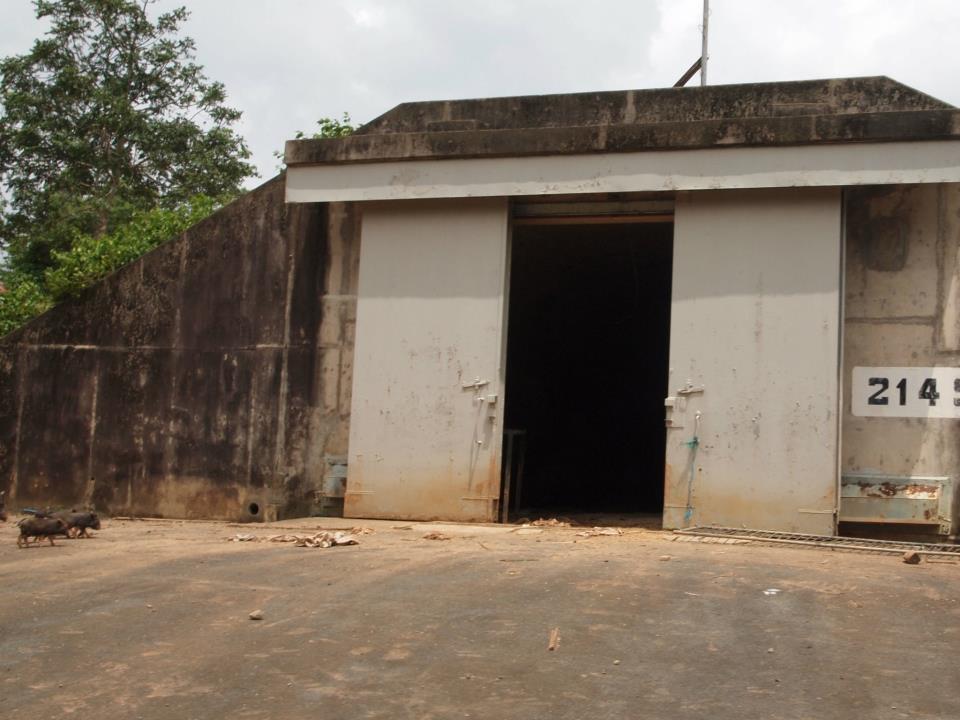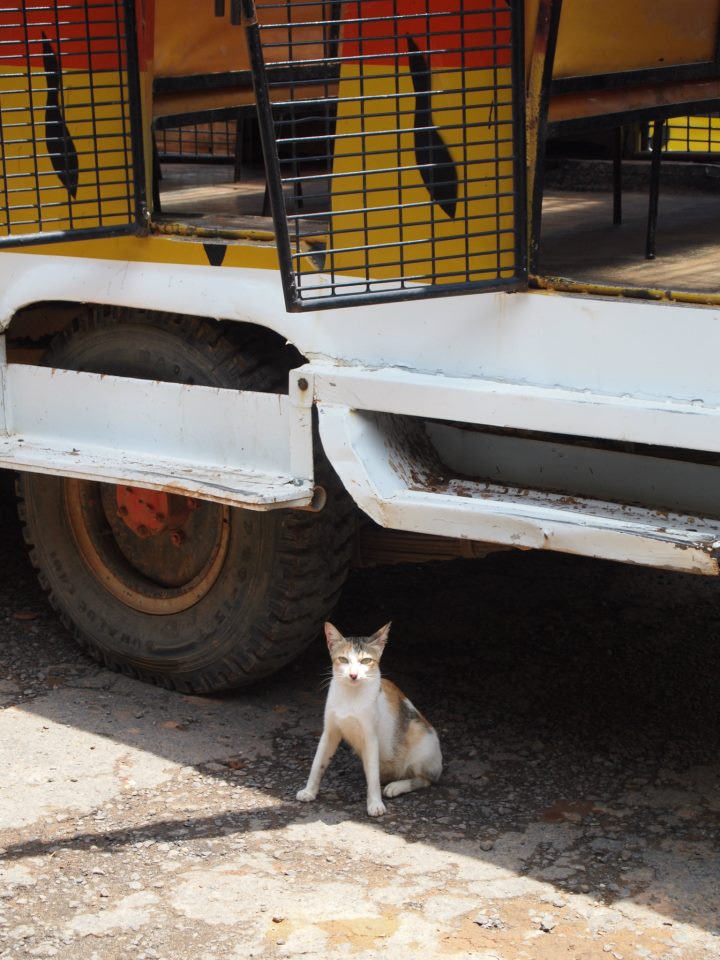They send a car to fetch me in the morning, even though the call center is only a kilometer from my hotel. I am a client, and they are careful about security. On the drive we pass through shafts of dusty sun that pierce the dome above us. Even the sunny days steam here, even the rainy days boil. Creeper vines have attached themselves to every surface in the neighborhood, which is a mix of residential and military housing, and scattered tiki bars. I’ve barely gotten my seat belt buckled when we pass through the rusted white gates of the call center’s outer checkpoint.
Men and women in starched blue shirts smile and take my details, record my laptop identity number on the clipboards they keep at the little podiums stationed at each successive area. Even my hotel has security officers at the door, and an old dog on a leash. The travel websites warn of terrorists and kidnappers, but I can’t manage to summon fear as a string of cheerful people say “Hello Ma’am,” in a pert nasal accent. They’re not too worried about terrorists. They’re protecting our data. They make an appropriate demonstration for visitors.
Laughter echoes from everywhere on campus, sounding the way it does at indoor swimming pools. When humidity is pervasive, it amplifies small noises, does strange things with distance. You hear someone talking just around the corner, but no one is there.
An old bunker outside of town
Ten minutes later I arrive at our training building, one of the oldest in the complex, set at the very back. Its walls and ceilings are stained in places with the damp, but I’m lucky because our training room has air con.
The complex is left over from Vietnam, one of the many occasions America came to pluck the strings, first in the tones of democracy, trade, and then war, naturally. This makes it hard to tell when the ghosts are from. My class tells me to watch out for the little boy, a trouble-maker. He’ll dangle his feet over the top of your bathroom stall.
The men and women are quiet and respectful, as they are in every classroom, in every country, at first. Some classes are solemn from beginning to end, and those are difficult. I can tell this class will be shaped by stronger personalities, the ones with sass, who will ask hard questions, but who won’t always pay attention. That’s good. You can joke with them, and through them encourage the rest of the class to speak. You can reign them in, and through them warn the rest of the class to pay attention.
Even with the air-conditioning unit, it’s hot. When I’m thirsty, and I’m thirsty all the time now, I can just take a deep breath of water-air, but on our breaks I crave the sweet little coffees that cost 15 Filipino pesos, if the machine in the hallway is working.
Feral cat resting in the shade of a truck
At 10 am we all stand outside for a few minutes, ignoring the tiny feral cats who pant at our ankles. Inside, the class has revealed itself to be bright and mischievous. They are incongruous with the mood of security, with the heavy, damp air that perhaps harbors spirits left behind by a history of cultural invasion. I suppose invasion is the heritage of most countries, but these islands have less room for the ghosts to wander. They must crowd about one another.
Outside the class is shy, especially the Catholic girls just out of high school. They cover their mouths with their hands when they laugh, and blush charmingly as the gay and straight men tease each other.
–Sosyaaaaal, one of the men says to another, and flips his wrist.
–Is that a Tagalog word? I ask.
-It’s a gay word, he says.
–They have their own language, a woman adds. Like ‘chenna’ is a conversation filler, but it means, Give me.
–What does sosyal mean? I ask.
–Classy.
The catholic girls nod in agreement.
At night I notice that I have begun to swell with this water-air. It settles in feather layers on my face, my neck, and then it seeps into me as if I don’t have an outer skin. My rings cut my fingers and my shoes don’t fit. The hotel is large and old, and I don’t see anyone in the hallway on the way to my room. I had asked the class if my hotel was haunted also, and reluctantly they said yes. Most of the old buildings are.
I sit at the bar for the comfort of the low voices around me, and for the bartender twirling glasses that catch the light. On the radio, there are Filipino remakes of American songs. Around me the businessmen are involved in their own conversations. They speak of attrition, of contingency planning, of occupancy. I wonder if they think they’re impressing me, but I’m being arrogant. We all like the cadence of our industry, the fluency of it, a warm bath we slosh around in on trips to foreign places. We revel in speaking its language to one another in the late hours of the evening, in dim bars like this.
Later, a live band sets up and begins to play an eerily perfect rendition of James Taylor’s Fire and Rain. Some Filipino women arrive and join the businessmen, who order grilled cheese sandwiches. When I leave everyone is beginning to have fun.
I see no ghosts on the way back to my room. I fall asleep to morning show hosts sharing their Thanksgiving recipes on TV. I miss David.


Leave a Reply